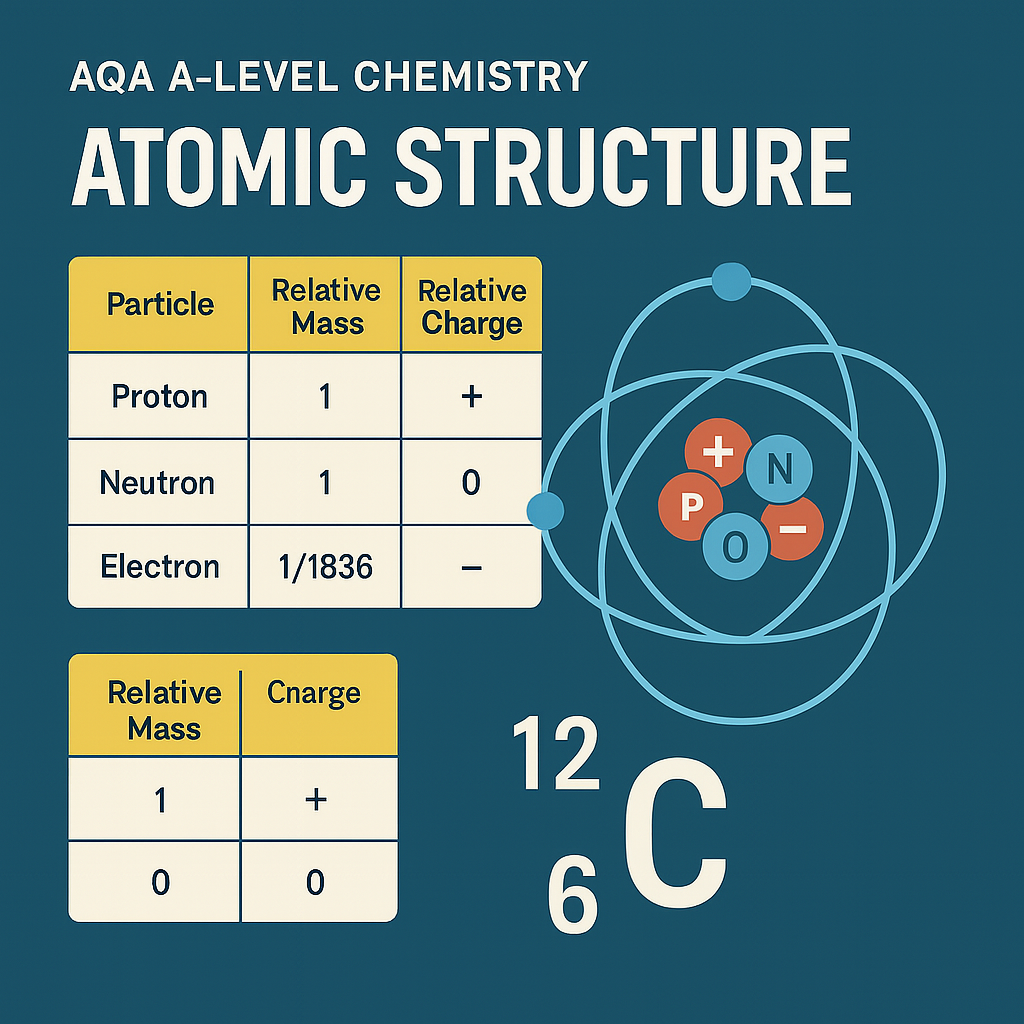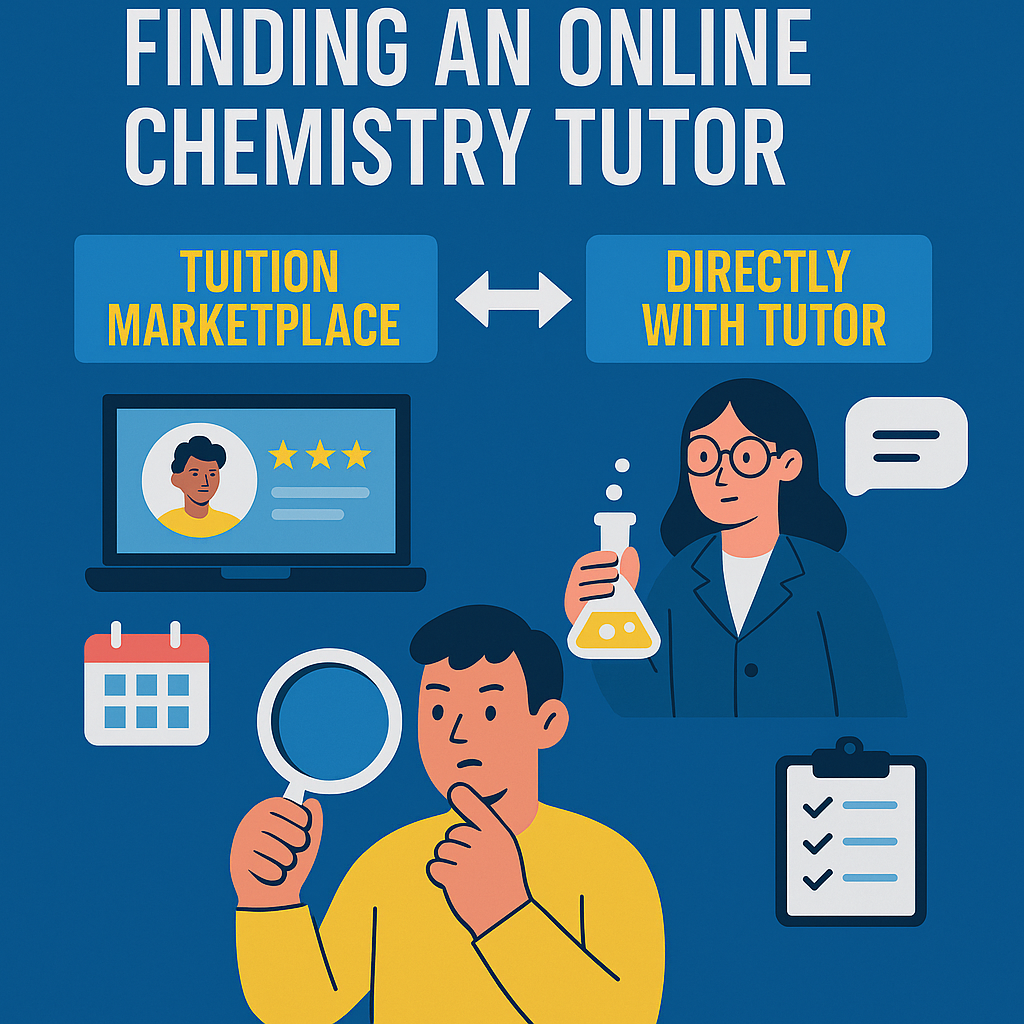How to Find Motivation to Study A-Level Chemistry – And Actually Stick With It
With the right support and mindset, you’ll not only make it through—you might even surprise yourself with what you’re capable of.
A-Level Chemistry is one of the most respected—and most challenging—subjects out there. But it’s also one of the easiest to lose motivation for.
Between difficult concepts, long calculations, and relentless past papers, it’s no surprise that many students feel overwhelmed or demotivated at some point. Whether you’re aiming for a career in medicine or just trying to pass, your mindset is just as important as your revision plan.
This blog will help you:
Understand why you’re struggling to stay motivated
Discover what makes A-Level Chemistry worth the effort
Learn practical strategies to build long-term study motivation
Turn “I can’t do this” into “I’ve got this”
Why Motivation Matters in Chemistry
Unlike some subjects where cramming might carry you through, A-Level Chemistry rewards:
Deep understanding
Step-by-step mastery
Consistent effort over time
It’s also cumulative: if you lose your way in one topic (say, bonding or enthalpy), it impacts later ones (like mechanisms or thermodynamics). That’s why falling behind early often leads to a dip in confidence—and motivation.
Motivation isn’t just about feeling like studying. It’s about building systems and habits that help you keep going, even on the days you don’t feel like it.
Step 1: Understand Why You’re Struggling to Stay Motivated
Start with honesty. What’s holding you back?
Common reasons include:
“It’s too hard.”
“I don’t see the point.”
“There’s too much to do—I don’t know where to start.”
“My last test didn’t go well, so what’s the point?”
“Other subjects come more naturally.”
You’re not alone. Every student feels like this at some point. The key is not to pretend it’s easy—but to acknowledge the challenge and find ways to work with it.
Step 2: Reconnect With Your “Why”
Motivation grows when you feel your effort has a purpose.
Ask yourself:
Why did I choose A-Level Chemistry in the first place?
Where can it take me—university, career, personal growth?
What will I be able to do with this qualification?
Even if you don’t “love” chemistry, remind yourself:
It’s a key subject for medicine, dentistry, pharmacy, and engineering
It sharpens your logic, resilience, and problem-solving
Employers and universities respect it—even if it's not your degree subject
💡 Tip: Write your reasons down. Keep them somewhere visible (your wall, notebook, phone lock screen).
Step 3: Break the Subject Into Manageable Pieces
Feeling overwhelmed is a motivation killer. A-Level Chemistry has a lot of content, but trying to do it all at once doesn’t work.
Instead:
Print out the syllabus or spec checklist
Break topics into micro-goals (e.g. “Revise Le Chatelier’s Principle” not “Revise equilibrium”)
Create a tracker that lets you check off what you’ve done
Chemistry rewards incremental progress. One small win at a time builds momentum.
Step 4: Make It Active, Not Passive
Reading your textbook for hours doesn’t motivate anyone—it usually leads to boredom and frustration.
Instead, make your study active:
Use flashcards (Quizlet or Anki)
Do practice questions after every topic
Teach the concept to someone else
Draw diagrams and mechanisms from memory
Solve problems out loud
💡 Active learning = higher engagement = higher motivation.
Step 5: Celebrate Small Wins
Studying chemistry can feel like climbing a mountain—but most people forget to look back at how far they’ve come.
Keep a “Success Log” where you write:
Topics you’ve mastered
Marks you’ve improved on
Mistakes you’ve learned from
Study sessions you completed even when you didn’t want to
Motivation increases when you feel like your work matters. Track your wins—even the small ones.
Step 6: Make Chemistry More Interesting
Yes, you have to learn some dry theory. But chemistry is also fascinating—when you let yourself explore it beyond the textbook.
Try:
Watching short YouTube explainers (e.g. Tyler DeWitt, FuseSchool, or MaChemGuy)
Learning how chemistry explains things in real life (e.g. skincare, cooking, climate change)
Reading books like The Disappearing Spoon or Why Chemical Reactions Happen
Doing at-home safe experiments or simulations online
When chemistry feels connected to your world, motivation comes more naturally.
Step 7: Use a Study Routine That Works for You
Your motivation will drop fast if you try to study for 4 hours straight on a topic you dread.
Instead:
Use the Pomodoro Technique (25 min focus, 5 min break)
Schedule tougher topics early in the day
Pair revision with something rewarding (e.g. treat, playlist, walk)
Mix topics you like with ones you don’t
Keep sessions short and consistent
💡 Tip: Motivation follows momentum. Just starting for 5 minutes can break a mental block.
Step 8: Use Visual Trackers to Stay Focused
Create a simple wall chart or digital tracker where you can:
Colour in completed topics
Tick off past paper questions
Track scores over time
Seeing progress visually is a great motivation booster—especially when your brain says “you haven’t done enough.”
Step 9: Work With Others
Studying alone all the time can be demoralising. Find study partners who:
Want to improve
Will keep you accountable
Are willing to explain or revise together
Can mark each other’s answers
If you don’t know anyone, try online forums or Reddit’s r/6thForm or Discord study groups.
💡 Or consider small group tuition—less pressure than 1-to-1, but more guidance than solo study.
Step 10: Reflect on Mistakes Without Letting Them Crush You
One bad test or confusing topic doesn’t define your future. But it can teach you something.
When you get a bad mark:
Don’t panic
Look at where the marks were lost
Review what you could have done differently
Re-attempt the question with guidance
Celebrate the process of improving
Every top student has made mistakes—they just chose to learn from them, not be defined by them.
Step 11: Use a Tutor or Mentor When Needed
If you feel stuck, demotivated, or like nothing is clicking—ask for help.
A great tutor will:
Explain things in a way that works for your brain
Help you focus on high-impact topics
Make learning feel less stressful
Keep you accountable without pressure
Tutors aren’t just for people who are “bad at chemistry”—they’re for students who want to study smarter, not just harder.
Step 12: Create a Study Space You Actually Want to Use
Environment matters. You’re more likely to study when your space:
Is clean and clutter-free
Has all your materials within reach
Has minimal distractions
Feels “separate” from relaxation zones (even just a different chair or corner)
Try lighting a candle, putting on instrumental music, or turning off notifications for a set time. Small changes make a big difference.
Step 13: Focus on Long-Term Motivation, Not Daily Mood
You won’t feel motivated every day—and that’s okay.
Focus on:
Building study habits, not relying on willpower
Tracking effort, not just mood
Reminding yourself why you started
Showing up—even on low-energy days
💡 Motivation isn’t a feeling—it’s a practice.
Step 14: Use Positive Self-Talk (It’s Not Cheesy, It’s Science)
The way you speak to yourself shapes your beliefs.
Try replacing:
“I’ll never get this” → “I haven’t mastered this yet”
“I’m bad at chemistry” → “I’m still improving at this topic”
“What’s the point?” → “Even small progress adds up”
Positive self-talk builds resilience—which keeps motivation alive.
Step 15: Build Reward Loops Into Your Week
Motivation needs fuel. Give yourself things to look forward to.
Try:
Mini-rewards after each revision block
A fun activity after a focused study session
A chill day after a productive week
Positive reinforcement when you complete a topic you dislike
Studying shouldn’t feel like punishment—it’s an investment. Treat yourself like you’re worth it (because you are).
Final Thoughts: You Can Build Your Motivation Back—One Step at a Time
If you’re struggling to stay motivated for A-Level Chemistry, know this: you’re not lazy, and you’re not alone.
You just need:
A clearer reason why
Better structure
More active learning
And a system that rewards progress
With the right support and mindset, you’ll not only make it through—you might even surprise yourself with what you’re capable of.
Need Help Rebuilding Chemistry Confidence and Motivation?
Book a 15 mins consultation with Dr Marguerite Quinn, an expert A-Level Chemistry tutor with over 3,470 hours of experience helping students turn frustration into focus. Whether you're aiming for a pass or pushing for an A*, Marguerite will help you build motivation, mastery, and momentum—one session at a time.





Understand AQA A-Level Chemistry Section 3.1.1.2 on mass number and isotopes. Learn key definitions, isotope notation, calculations, and how this topic builds your scientific and exam skills.